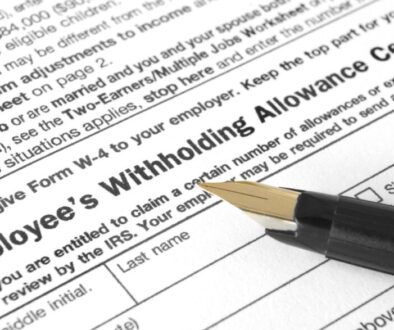What Happens If You Don’t Report Cryptocurrency on Taxes?
What Happens If You Don’t Report Cryptocurrency on Taxes?
Cryptocurrency, such as Bitcoin or Ethereum, are types of digital assets that are decentralized so that banks or governing bodies are not involved in the transaction. One might think that because the asset is decentralized that the IRS doesn’t need to know about your investments, sales, or earnings in cryptocurrency, but that is not true. The IRS treats cryptocurrencies as property and when you exchange, transfer, or buy/sell them, then it counts as a taxable transaction for you and results in a capital gain or loss. Earnings from your investments in this digital asset class also count and are taxed as ordinary income.
How the IRS Asks You About Crypto
On the front page of your most recent 1040 tax return, there is a question that stated:
“At any time during 2021, did you receive, sell, exchange or otherwise dispose of any financial interest in any virtual currency?”
You must answer yes or no to this question.
You can check no if you held cryptocurrency in your own wallet or account, or transferred it between your own wallet/accounts. You can also select no if you purchased virtual currency using real currency, according to the IRS.
If you used cryptocurrency as a payment for goods or services, you need to check yes for this question. You’ll also need to check yes if you received virtual currency from mining or staking, from a hard fork, as an exchange for goods/services, as a trade or exchange for other virtual currency, if you’ve sold virtual currency or if you’ve disposed of cryptocurrencies. The IRS lists all of the events that would trigger you to click yes on this form on their website.
If you answer yes to this question, the IRS wants you to include the income from any cryptocurrency transaction in your tax return. This is likely included as capital loss or gains on your schedule D.
What’s of more importance to the IRS is if you answer no to this question, neglect to include any capital gains or loss from crypto transactions, when you do in fact have capital gains/loss from your cryptocurrency investments. If you’ve had taxable activity from cryptocurrency and have answered no, then you’ve lied to the IRS, which is considered perjury and potential fraud.
What Happens If You Don’t Report Cryptocurrency On Taxes?
If you’ve had taxable events occur during the year related to cryptocurrency and you neglect to report them to the IRS, you’re responsible for the outcome – and that can include some harsh repercussions. If the IRS audits you and finds that you’ve had taxable events related to cryptocurrency that were unreported, you may face interest and penalties, not to mention criminal charges.
Failing to report taxable cryptocurrency activity may be considered tax evasion or fraud, and while there is a three-year lookback for errors with the IRS there is no statute of limitations for fraud.
Err on the Side of Caution
When it comes to reporting cryptocurrencies on your taxes, err on the side of caution. Thoroughly read through the most recent guidance from the IRS, and consult with a tax professional to ensure that you’re reporting everything that you need to report. Ensure that you’re keeping good records of your transactions to make tax time easier.
Want tax tips delivered to your inbox?




